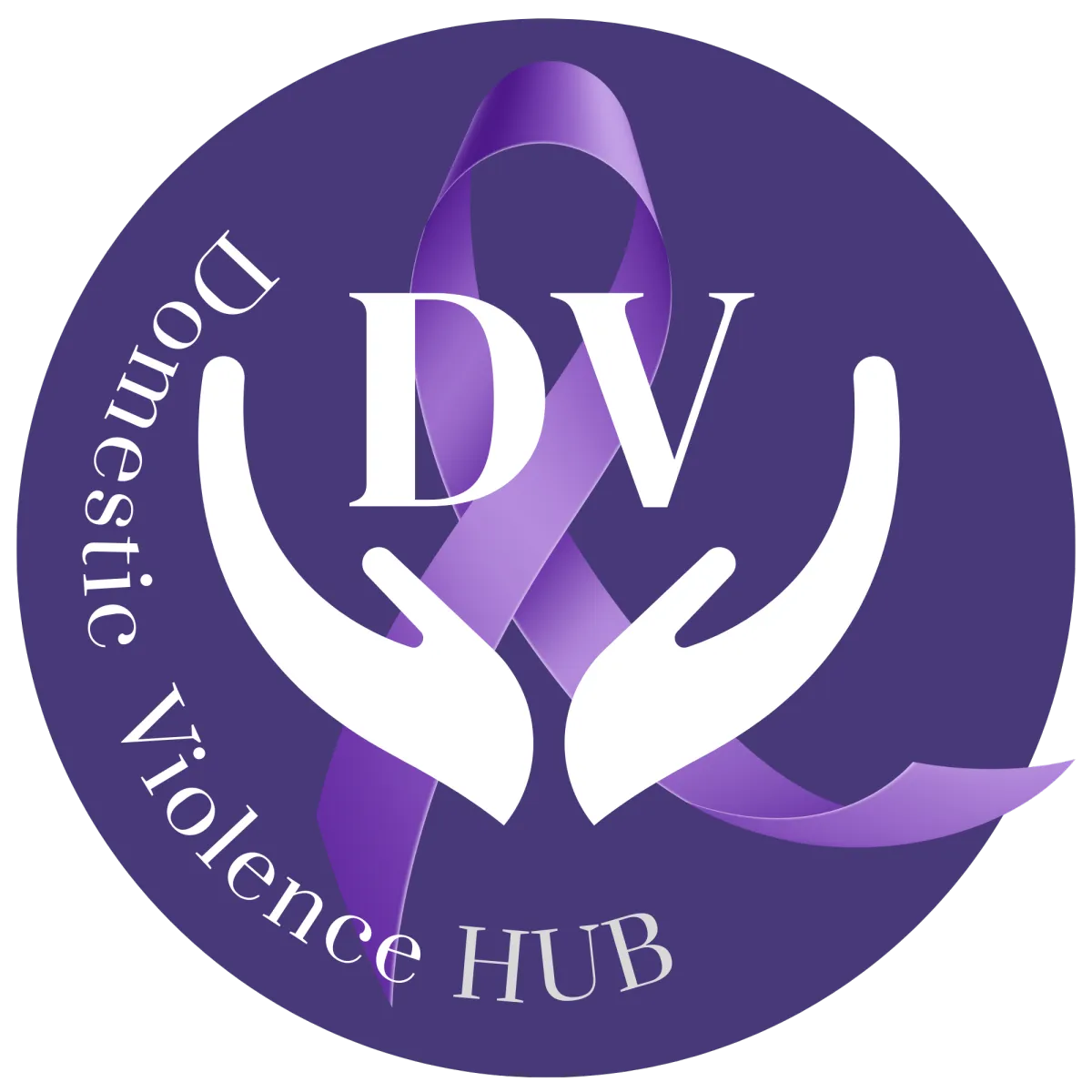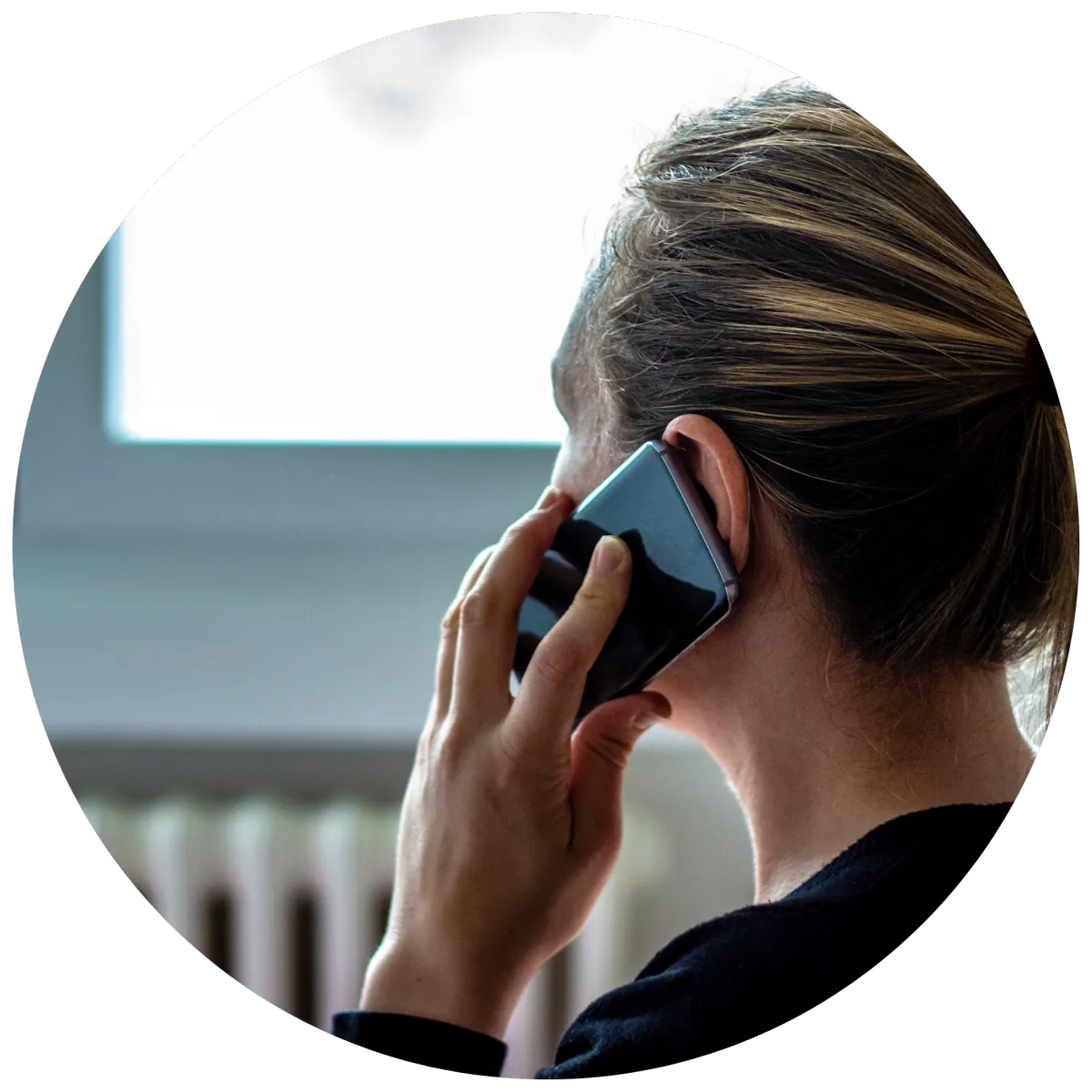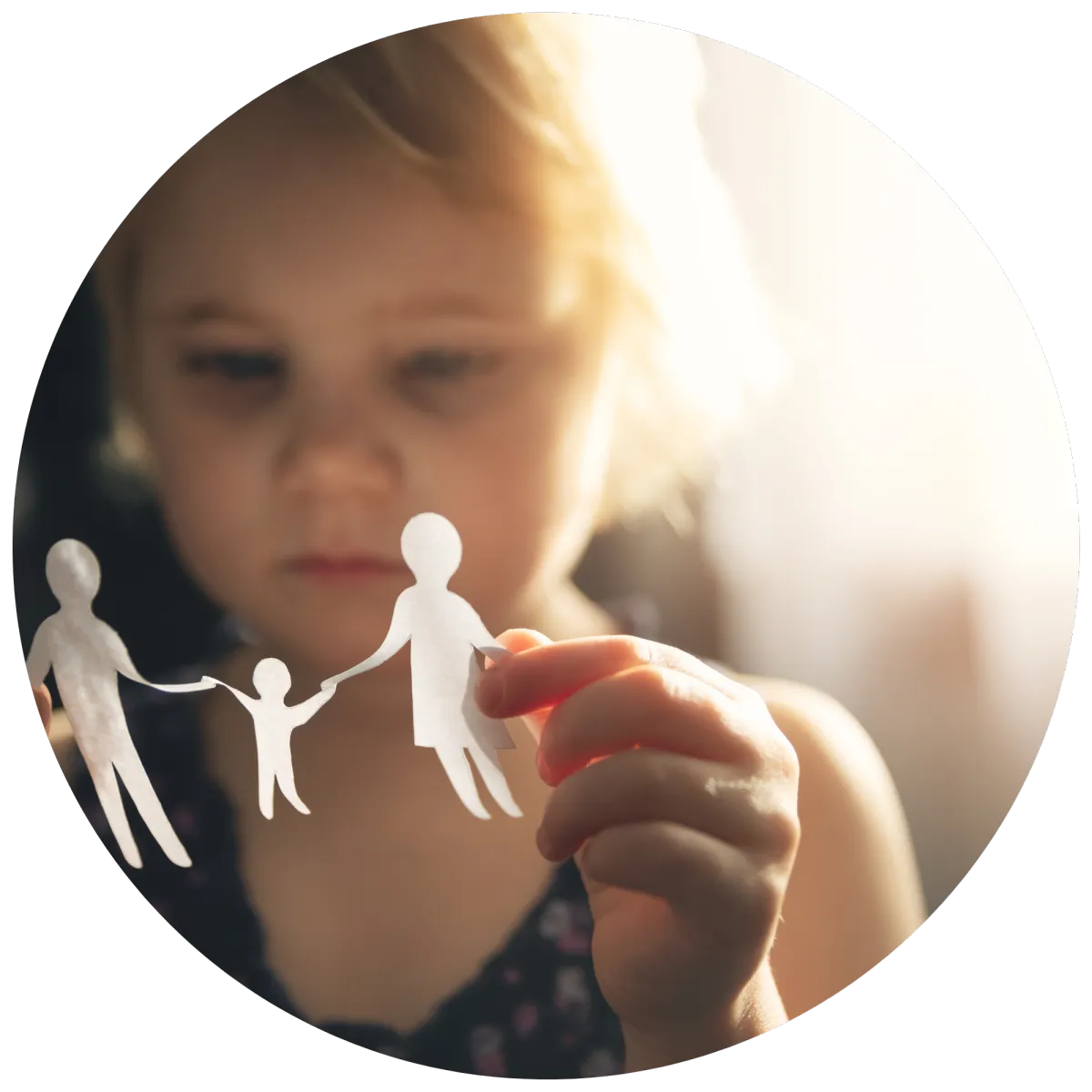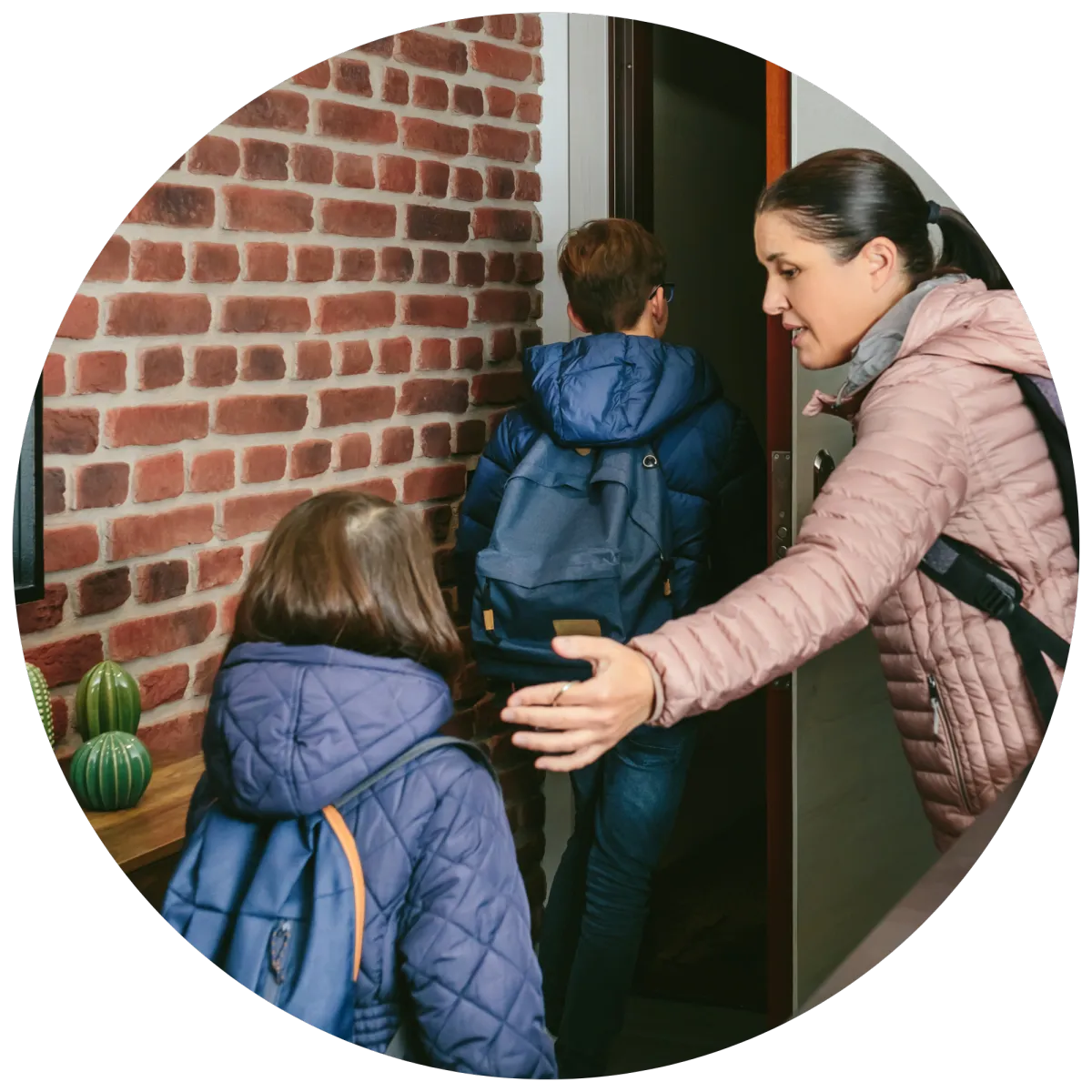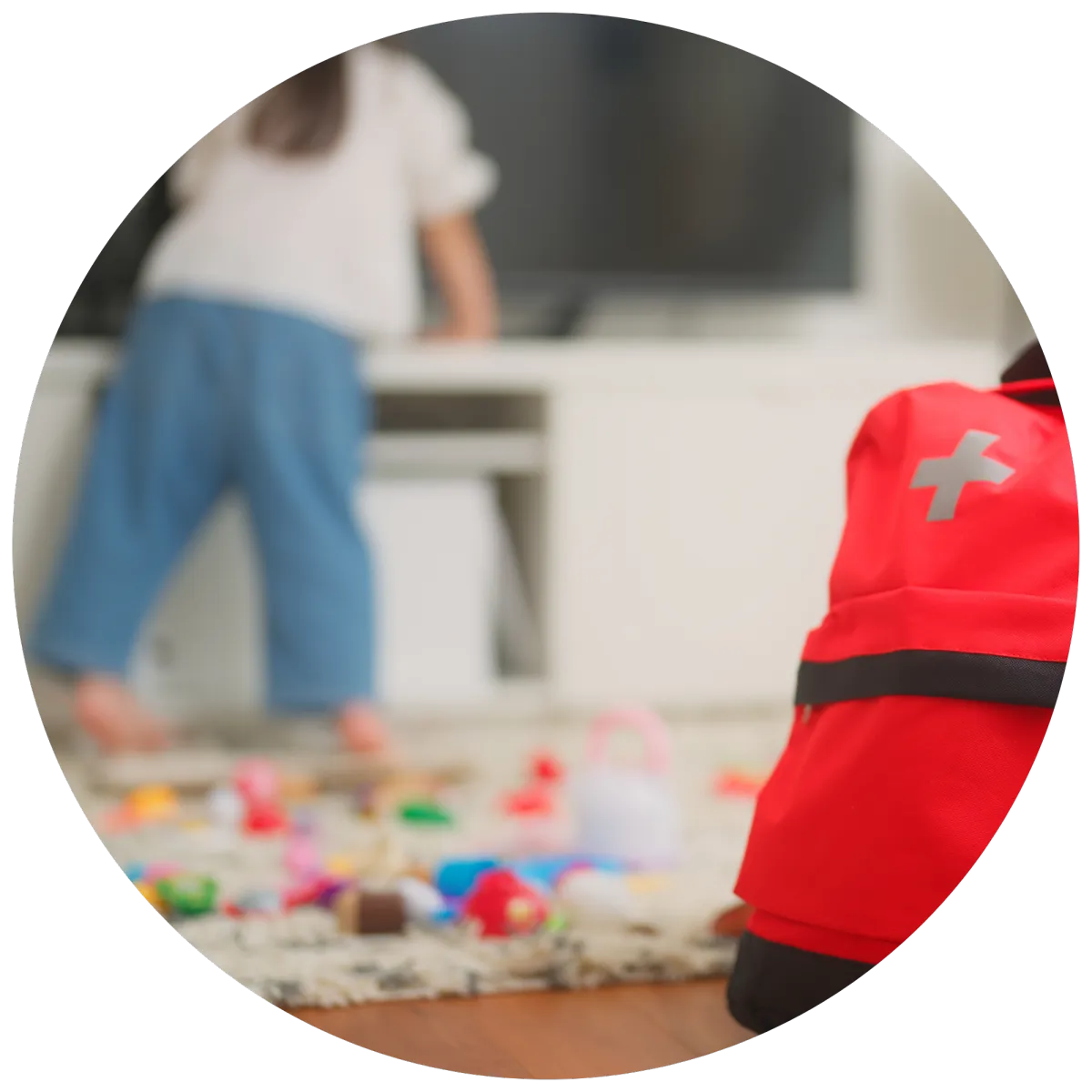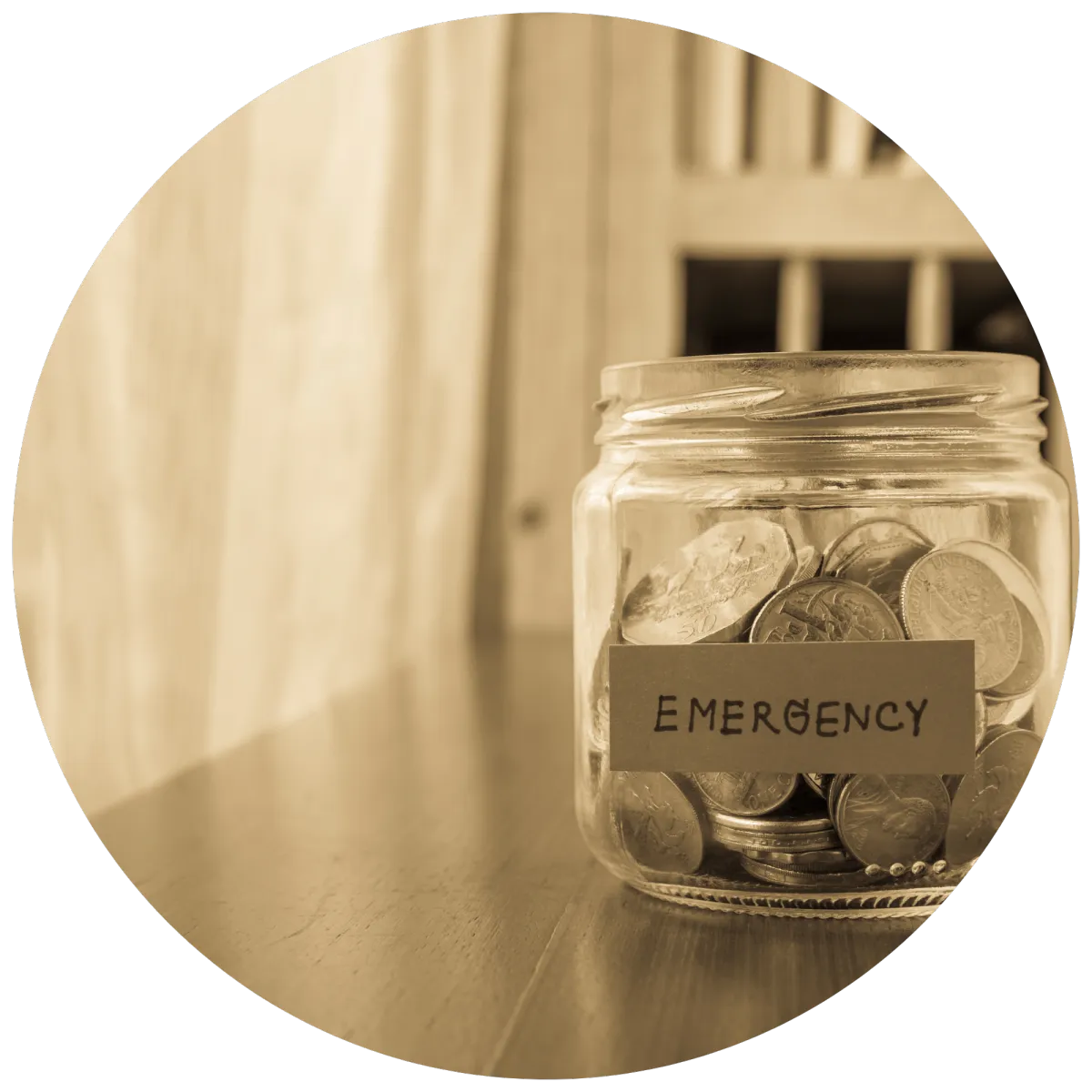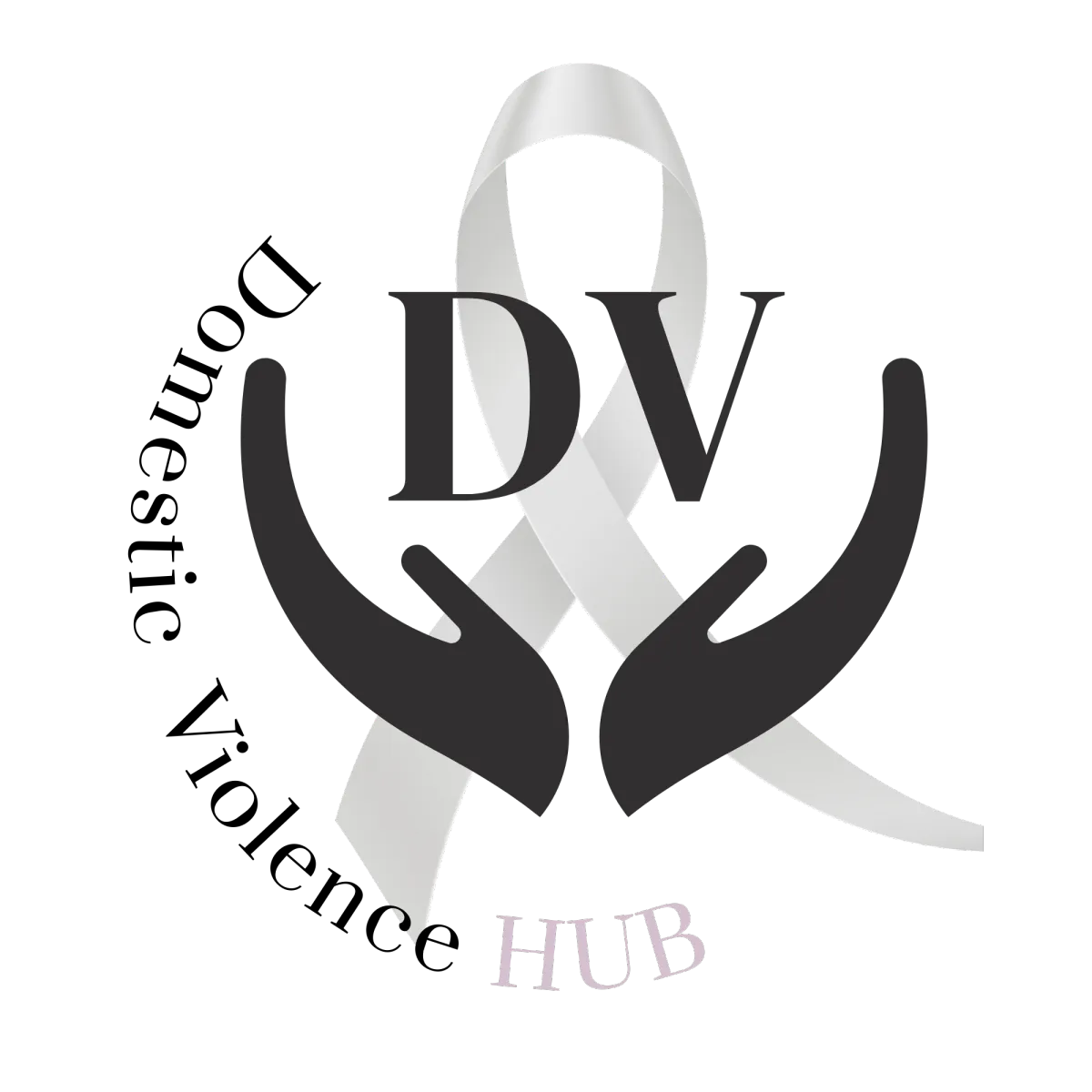Safe Exit & Staying Safe
The DV Support Hub, provides FREE consolidated information on Australian domestic and family violence matters.
It is just one of the many hubs provided for free through Family Counselling Support Network, to Australians. If you, or are family member, are facing family and domestic violence or supporting someone who is, this hub provides information, resources and a guide on how to find support, keep safe, access resources and move forward safely with independence and greater confidence.
We endeavour to keep this information as up to date as possible.
This site is dedicated to the memory of all those who have lost their lives and the resilience of survivors.
If you have arrived at this hub because you or your loved one or friend is in need of support, we are extremely proud of you.
If you have arrived at this hub because you are seeking support to help find solutions to deal with your emotions, great move, we are also here for you to get the support you need.
Please know there is love and support for you. You've Got This.
There is never an excuse for abuse.
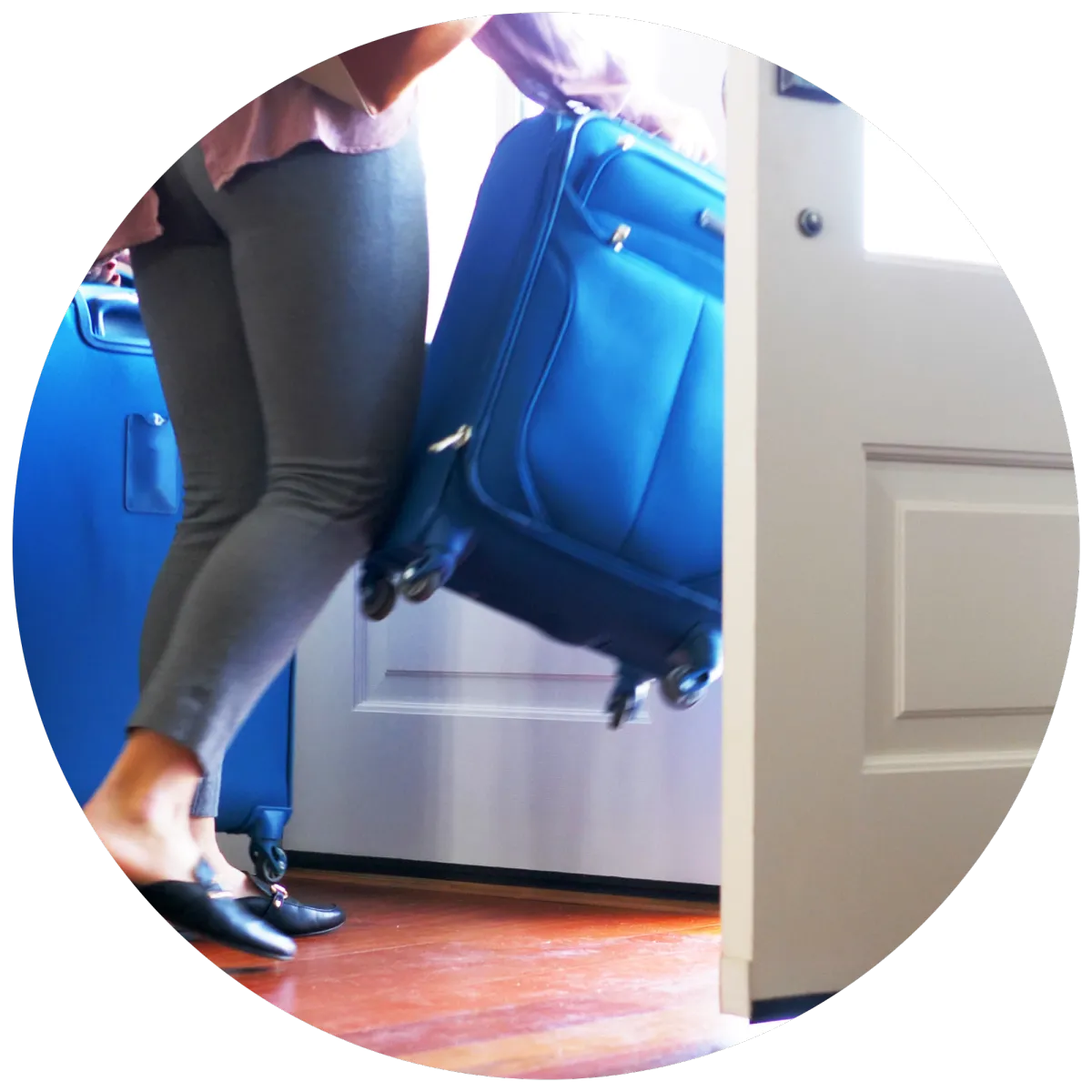
🫂Stay or Go
🫂Safe exit planning
🫂The safe exit bag -what to pack and take if you go
🫂Technology safety
🫂Greater Risks for the first few weeks after leaving
🫂Ongoing risks for your safety
First and foremost, know that you are not alone and that the abuse is not your fault.
If you are experiencing abuse, harassment, or harm from your partner, or think that you might be, help is available. You have the right to be safe and demand respect.
Abusers are good at making you believe this life is all you deserve. That this is as good as it gets. That you’d be lost without them. They’re lying. You deserve happiness. Now read that bit again: YOU. DESERVE. HAPPINESS.
The only person responsible for your abuse is your abuser. You didn’t cause this. You can’t control it. You cannot fix them. What you can do, is get help.
Only you can decide whether to stay or go - it doesn’t have to happen right now – or next week, next month, or even next year – but you can leave and you do deserve to be happy and safe, as much as anybody else. You are worth so much more. We’ll work with you towards a brighter and happier future that is free from fear.
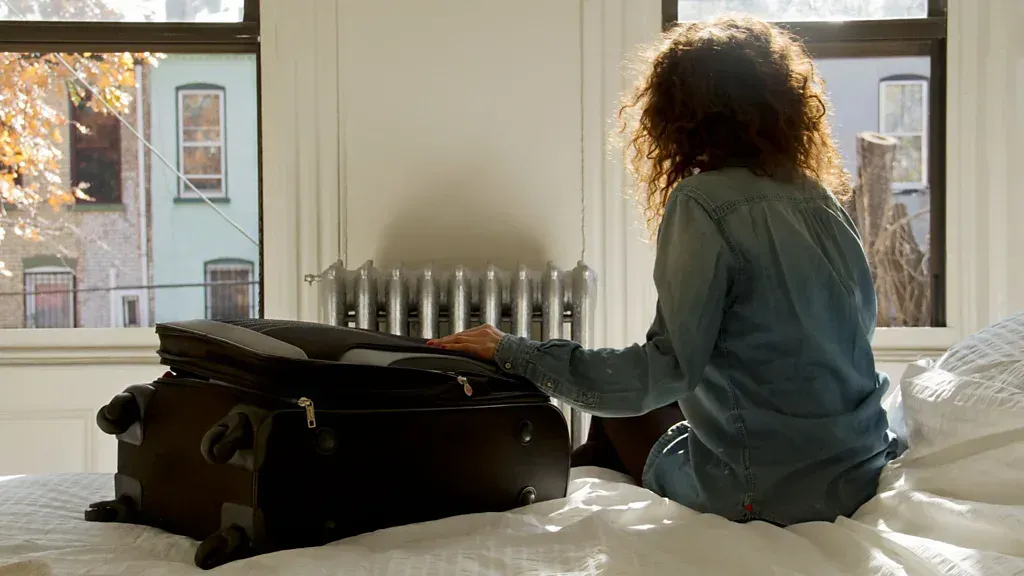
STAY OR GO.....
Asking for help can save you from mental and physical suffering – it may even save your life. Telling someone that your partner is being abusive toward you is the first step to believing you are worthy of a better life; you don’t have to manage this alone. Research tells us that, for women who are being abused in their intimate relationships, getting support from a domestic violence service as soon as possible gets the best outcomes for them. Talking to a professional domestic violence service provider will help you consider your options and work out ways to be safe, whether you want to stay in your relationship or leave. Do not be afraid to ask for help, you are not alone.
1800RESPECT is an excellent place to start for support. Refer to this website for additional information on support services on this website.
We realise that the prospect of leaving an abusive relationship - to stay or go- can be a daunting one. As well as fearing for your own safety – and perhaps the safety of your children – there can be several different emotional and practical considerations too.
Leaving urgently
If you’re in immediate danger and need to urgently escape from domestic abuse, you might want to leave quickly and move in with a friend or family member – or into crisis accommodation – where you can safely plan your next steps. If you are in imminent danger call Police on 000. If you need assistance to access the resources you need to leave, contact
1800RESPECT.
Taking your time
If you’re thinking of leaving but you’re not sure if you can do it – or if you’re frightened about what might happen if you try – making a safety plan and working towards small, achievable goals can make it all feel a bit less overwhelming. We are here for you however long it takes. We know it’s not always as simple as being treated badly so packing your bags and leaving. It’s complex. You have a history together. How will the kids cope? How will you afford it?
It doesn’t have to happen all at once. Take your time. Educate yourself about different types of abuse. Look at our red flag checklists and the checklists of the different types of abuse. This may help identify the extent of issues for you and the strategies you may need to take.
➡️Arm yourself with the tools you need to keep going.
➡️Gather together important documents – including passports, birth certificates and bank details if safe to do so.
➡️And develop a network of support. Reconnect with people you’ve lost touch with. Pick up the phone and talk to people. They do still care.
Issues & QW often raised during the stay or go time
I think that I want to leave. What’s the best way to do this?
It’s not unusual for violence to increase if your partner finds out that you are planning to leave. It is important not to tell them, and to plan for your safe departure. Your local domestic violence service can help you develop a safety plan, designed to meet your needs.
We recommend that you contact a specialist service for support to plan for your safety. When contacting services please use a safe phone that you do not believe the abuser is checking or able to watch. This could be a friend, family member, or colleague's phone. The information provided below is general information only. It does not replace advice and support from a domestic violence specialist. Its most helpful to get advice that is specific for your situation
Effective safety plans usually include letting someone you trust (e.g. a friend, family member or a domestic violence counsellor) know that you are being abused and that you plan to leave.
It’s best to:
1. Know where you are going to – for example to a friend, a family member, motel, refuge and how you will get there (Friend, bus, taxi etc)
2. Have a leaving/escape bag packed for you and your children. Refer to details on this website about what to include if possible in the bag.
3. Plan for safety. Practise your escape route. Educate the children if they are old enough and can be trusted not to reveal to the perpetrator. Teach even young children how to call 000.
How am I ever going to get access to food, accommodation, finances etc if I leave?
Our website sets out some of the key support services in Australia to get help.
1800RESPECT is the national online and telephone counselling and support service for people who have experienced, or are at risk of experiencing, sexual assault and/or domestic and family violence, their family and friends, and frontline and isolated workers.
I’m worried about what will happen to my children if I leave?
When you take your children away from an abusive relationship you are doing it for them, as well as for yourself. You and your children have the right to be safe in your own home. Even if your children are not being directly hurt by your partner, seeing you being abused usually does emotional damage to them. Your local domestic violence service can provide ongoing counselling for both you and your children. (They can also suggest places your partner can go for counselling.) Domestic violence services can contact other support services that you need so that your children can live in a safe and caring environment where they won’t be abused or neglected.
My partner has pushed and shoved me a few times, but has never hit me with a fist.
Domestic violence often starts with small, occasional incidents. These can escalate to life threatening assaults.
What does your partner want you to feel when they push and shove you? Have a look at the types of abuse checklists and complete if you can.
My partner says they’re sorry and it will never happen again.
Most people who abuse their partners know their behaviour is wrong. It is common for them to feel sorry after an abusive episode and promise never to do it again. The reality is that most domestic violence involves a cycle of ongoing abuse – where the person says they’re sorry, treats you really well for a while, then the situation gradually builds up to another explosion of violence ... then comes the next apology.
What are the legal implications for shared parenting of my children if I leave?
When making a parenting decision the Family Law Courts will look to what is in the children’s best interest; for example, if there has been family violence or abuse It is important to get advice from a lawyer as soon as possible, ideally before you leave the relationship. It is very important to tell your lawyer about any family violence, how it has affected you and the children and any concerns you have about you and your children’s safety.
I can’t go to my family, and I don’t like the idea of going to a shelter.
There are different types of women’s refuges, or shelters. Some have self-contained units, some have separate units with shared space, and some are like a share-house. Ask your local domestic violence service about the shelters available, so you know what to expect. Even if the arrangements are not perfect for you, there are real advantages in going to a women’s shelter. It gives you time out from the violence – a chance to think about your situation and what you want to do with your life. At a shelter, you will meet other women who are dealing with similar problems. It can be very helpful to talk with them ... to see that you are not alone and that the violence is not your fault. Also, the workers at women’s shelters are experienced in helping women and children escaping domestic violence. They will be able to provide you with information and referrals and help you look at your options so you are able to make your own choices and future plans.
My partner told me they’ll kill themselves, me and the kids, if we leave.
This is a very serious threat. Your risk is especially high if your partner is threatening to kill someone. PLEASE talk to your local domestic violence service as soon as possible. Threatening suicide and/or murder is emotional abuse, because your partner is making you feel scared and trying to blackmail you into staying. If you’re worried about your partner hurting themselves, your local domestic violence service can tell you about where they can get help.
My partner told me that if I leave they’ll report me to Child Safety and I’ll lose the kids.
The Department of Child Safety is responsible for making sure that children are safe. They know that domestic and family violence harms children. By leaving an abusive relationship you are demonstrating that you have your children’s best interests at heart. If your partner tells the Department that you are mistreating your children a Department worker will make an appointment to talk to you to find out what your situation is and to make sure that your children are safe. You should not lose your children simply because you left your partner.
My partner threatens that if I leave they’ll tell Immigration and I’ll be deported. I don’t want to lose my kids.
Women who are on temporary visas and who choose to separate from their partner may still be able to apply for permanent residence even after the relationship has ended. It is important that you seek migration advice to learn of your options to remain lawfully in Australia.
Your local domestic violence service can help you to access free migration advice from a registered migration agent. A migration agent will assist you with any paperwork required to help you with your permanent visa. The domestic violence service can also refer you to a legal service for advice regarding any children that you may have as well as arrange accommodation at a women’s shelter to keep you and your children safe.
My family give me a hard time because I keep going back to my partner.
Often families get frustrated when they see you leave and return several times to your partner, because they are worried about you and your children and don’t want to see you in an abusive relationship. Your local domestic violence service know that it sometimes takes many years, and several attempts, before you are finally ready to leave an abusive relationship ... and that you may never leave. They can help you develop strategies to be safer within your relationship. They will respect your right to make your own decisions about when, or whether, to leave. They can also help your family better understand some of the issues you face when leaving an abusive relationship.
I’m scared about what my partner will do if I call the police and I don’t want them to get a criminal record
Your partner won’t want the police involved and will probably be angry when you ring them. But the most important thing is that you and your children are safe. Ringing 000 is one way to receive immediate assistance if you are in serious danger.
Your partner will not automatically get a criminal record:
1. When police arrive at the scene their first priority is to make sure that you and your children are safe.
2. They should talk to you and your partner separately.
3. The police have the power to keep your partner for up to 4 hours if they believe your safety is threatened.
4. During this time, the police must lodge an application for a Domestic Violence Protection Order (DVPO). This means that your partner must not commit domestic violence for a specific length of time, which will be written on the order.
5. Your partner will only get into trouble if they continue to abuse you after the DVPO is in place – then they are at risk of getting a criminal record.
People tell me it’s not my fault, but I feel so ashamed to reach out and guilty.
You may feel guilty for many different reasons. Perhaps you feel responsible for the fact that your children are exposed to violence? Or, you feel that it’s your fault that the relationship didn’t work out? Or, you feel bad about taking your children away from their other parent? Or, you believe your abusive partner when they tell you that everything that’s gone wrong is your fault? By making you feel ashamed and guilty your partner is encouraging silence and secrecy, which prevents you from seeking help. Your local domestic violence service knows how scary it is for you to ask for help, and they are used to women blaming themselves for their situation.
The reality is that women who seek help have enormous courage. By seeking support you are giving yourself and your children a chance for a happier and safer life.
Is it better to stay in an abusive relationship rather than raise my children as a single parent?
Children do best in a safe, stable, loving environment, whether that’s with one parent or two. You may think that your kids won’t be negatively affected by the abuse if they never see it happen. But children can also hear abuse, such as screaming and the sounds of hitting. They can also sense tension and fear. Even if your kids don’t see you being abused, they can be negatively affected by the violence they know is happening.
If you decide to leave an abusive relationship, you may be helping your children feel safer and making them less likely to tolerate abuse as they get older. If you decide not to leave, you can still take steps to protect your children and yourself.
How can I make myself and my children safe right now if I’m not ready to leave an abuser?
Your safety and the safety of your children are the biggest priorities. If you are not yet ready or willing to leave an abusive relationship, you can take steps to help yourself and your children now, including:
Making a safety plan for you and your child
Listening and talking to your child and letting them know that abuse is not OK and is not their fault
Reaching out to a domestic violence support person who can help you learn your options
If you are thinking about leaving an abusive relationship, you may want to keep quiet about it in front of your children. Young children may not be able to keep a secret from an adult in their life. Children may say something about your plan to leave without realizing it. If it would be unsafe for an abusive partner to know ahead of time you’re planning to leave, talk only to trusted adults about your plan. It’s better for you and your children to be physically safe than for your children to know ahead of time that you will be leaving.
Reference: www.noviolence.org.au
SAFE EXIT PLANNING
If you think you might be experiencing abuse, harassment, or harm, it is important to make a plan to keep yourself and your children as safe as possible.
A safety plan
is a personalized, practical plan to improve your safety while experiencing abuse, preparing to leave an abusive situation, or after you leave. The plan will help you think through some of the steps you may decide to take to protect yourself and your children.
If you would like support with making a safety plan, you can call 1800RESPECT on 1800 737 732, text 0458 737 732 or visit their website
For online chat and video call services: Available 24/7: Call, text or online chat Mon-Fri, 9am-5pm AEST(except national public holidays). Video call (no appointment needed).
Your safety plan may include:
Where to get help - family, friends, neighbours, support services, police etc. Consider how they may assist with keeping your important documents and evidence safe and a list of contacts, passwords and logins etc, opening a small bank account for you, storing your exit/go safety bag, safety checks (welfare checks) on you and the children, accommodation and food and financial support if you leave, to help you file a report, seek protection orders, get access to important resources.
Keep a list of important phone numbers (police, domestic violence hotline, hospital).
Plan with your children - what to say, how to escape, and what to do (if they are old enough not to accidentally tell the offender of plans). Identify a safe place for them (room with a lock, neighbor’s house). Let them know that their job is to stay safe; not to protect you. Arrange a signal with a neighbor for when you need help. Teach all children how to call 000 and advise them of where trusted neighbours live and their names.
Prepare an emergency kit or "go bag" that you can get to quickly. (You may want to keep it at a trusted friend’s/neighbor’s house.) See details below
Plan the safest time to get away and how to reduce the chances of having your location tracked in the short term at least.
Know how you will leave and which doors or windows you will use if need to exit quickly.
Consider how you will access key resources- emergency food, accommodation, children and pet care, financial, medical support.
Technology/esafety - refer to this website for more information on how to remain safe without having technology being used against you.
NOTE: Leaving can be the most dangerous time in an abusive relationship, so if you forget something, do not return to the home
If you are currently experiencing domestic violence and need to leave quickly, you should ideally consider:
⏹️Consider your plan on how you and the children could get out of the house quickly and safely.
⏹️Try to position yourself near a door where you can escape quickly.
⏹️If you haven't already and it is safe to do so, put together a suitcase and keep it at somewhere safe, easily accessible, and hidden from your partner. You may be able to store it somewhere else such as at a friends, storage facility. See list below.
⏹️Get the phone numbers for local shelters and resources saved in a secure place so that you can access them quickly. Consider where the local police station is.
⏹️Tell trusted neighbors about the abuse and ask them to take action if they hear noises coming from your home.
If you are thinking about leaving an abusive partner and still staying, then consider:
Think about what you can do to keep yourself safe, particularly at times when your partner becomes abusive, or you sense the situation is escalating.
➡️Identify things that have worked in the past to keep you safe.
➡️Think about what has happened in the past and how the abuser has acted.
➡️Identify clues that indicate when the abuser might become violent (e.g., behavioral: body language, drug/alcohol use, etc.; and event driven: paydays, holidays, etc.).
➡️Identify what you will do if the violence starts again.
➡️Is it safe to call the police? Review the website on what to do if it is not safe to speak when calling police.
➡️Is there a phone in the house? If not, how can you safely access one that is hidden? Can you have one hidden elsewhere and/or a different sim card-
➡️If safe to do so, consider opening a PO Box if possible and store these things there with key documents or at least copies of key documents or photographs or documents and evidence.
➡️Can you work out a signal with the children or neighbors to get help? For example, switch on a particular light, leave a curtain blind open/closed, phone or text a friend with an agreed cue or message that will be a prompt or code for them to help in whatever way you have discussed. Have a code that you can use to notify police.
➡️Explore ways to have dangerous weapons (e.g., guns, hunting knives, etc.) removed from the house or at least locked up or inaccessible (eg remove knife-blocks from kitchen benches.
➡️Plan an escape route and practice it with your children and how you might escape from your home safely and quickly. Think about the safest exits so that when you feel that things are getting out of control you can leave very quickly. Let trusted family and friends know about the abuse and safety plan.
Teach the children that it is their job to be safe and not to rescue you.
➡️Know where you can go and who you can call for help. The offender is likely to locate you if you go to a family or friend's residence.
➡️Keep a list of addresses and phone numbers where you can go in crisis and keep them in a safe place. Including police, taxi company (not uber if shared account), local support services, family or friends - speed dial on phone.
➡️If possible, open a bank account or hide money to establish or increase independence.
➡️Have a quick exit bag ready (as per below) or at the very least,essential items like spare keys, money and important documents or copies of them, where you can get to them easily quickly.
➡️If possible keep a safety diary/journal and record instances of abuse, keep a Safety Diary and record details, dates, times and photos. You may want to keep your Safety Diary at your doctor’s office, a friend’s house or electronically but remember to make sure it is secure (you could use a password, email it to someone you trust or hide it under another name). Refer to Evidence Collection on this website.
You can purchase our DV evidence and safety journal here and have it sent to a safe location.
➡️Ask a family member or friend if they can take care of your pets at their house, or regularly take the pets for walks.
SAFE EXIT BAG
Gather the following items (for yourself and your children) and hide them with a trusted individual or somewhere accessible outside the home:
Money/cab fare (don't use your uber account if you have one as will be able to track)
Credit card/ATM card - please remember transactions on credit cards may help identify where you are located initially
Domestic violence/protection orders
Passport (yours and the children's)
Immigration documents (yours and children's) including Visa
Work permit
Forms of identification - Passport, Driver’s license and car registration
Tax File Number
Medical records (yours and children's)
Insurance policies (including life insurance)
Copies of any key documents eg bank documents, title to house, trusts, will, car registration, tax file number, loan records, account details, etc. (If you cannot get original, take copies and store them safely outside of the home)
Medicare care card, pharmacy card, passwords/logins to key accounts
Medical records or the like if need evidence
New phone/SIM card
Evidence of violence/police interactions
Court records, orders, parenting plans
Children’s school and immunization records
Lease/rental agreement
Extra set of keys - house and car if possible
Birth certificates (yours and children's)
Baby’s things (e.g., diapers, formula, medication, comforter, small toy)
Medications, prescriptions and glasses if needed
Clothing for all
Family pictures and precious small items
Important telephone numbers
Mobile phone and charger (see Cell Phone & Location Safety Strategies on esafety and TechSafety.org for important information about cell phone monitoring)
Jewelry or other small items you may be able to sell.
Pet food and equipment for travelling eg leash, cage, documents
The first few weeks after you have left or the abuser/ perpetrator has left the home:
IMPORTANT: The time after leaving an domestic violence situation can be very dangerous. The below tips may help reduce this risk but you should be very careful during this time.
⏹️Change the locks on doors and windows (if the abuser has a key or access to a key)
⏹️Make it easier for someone to locate your house by having a large visible street address outside the house
⏹️Redirect your mail, even if staying in your home. Obtain a P.O. Box and forward all your mail to it. Speak to Australia Post about getting help.
You can receive up to 12 months of free mail redirection to help you stay connected and ensure your mail arrives at your new address. You can also sign up for a free PO Box for up to 23 months to protect your privacy and not reveal your new address.
You can apply in-person at any Post Office in Australia, providing the following documentation with you:
A completed mail redirection form and if you also wish to access a free PO Box to protect your privacy and not reveal your new address, you will need to fill out a PO Box application form.
⏹️If you remain in the home, tell neighbours that your partner does not live with you and ask them to call the police if he is seen near your house or if they hear an assault occurring.
⏹️Ensure that utility companies will not give out your information to your abuser.
⏹️Determine the safest way to communicate with the abuser if they must have contact.
⏹️If you agree to meet, always do it in a public place (this may be a place with a security guard or police officer), and it’s best to bring someone else.
⏹️Make sure you are not followed home.
⏹️If your partner follows you in the car, drive to a hospital or fire station and keep honking the horn.
⏹️Ensure there is no surveillance, tracking devices etc that are of concern (see further details below)
⏹️Check all technological devices and update all passwords and logins (see esafety checklist on this website)
⏹️Report to police and apply for an ADVO if you don't already have one, or if you have one and its needs amending/varying apply to have the changes made to cover your current risks.
⏹️Keep a mobile phone with you at all times and pre-program any numbers you might need in an emergency; including the Police and DV Support Services in your State who will be able to provide you with 24 Hour Refuge Referral Assistance or other emergency assistance.
⏹️Vary your travel routes to and from work.
⏹️Change your routines -where you shop, go to the Drs, standard appointments, normal social gathering each week, regular family catch ups, chemist collections et
⏹️Immediately apply for any government grants and leave you are entitled to including the Escaping Violence Payment and consider applying for DV Leave.
⏹️If your ex-partner breaches a protection order, telephone the Police and report the breach. If the Police do not help, contact your advocate or a legal service for assistance to access support with making a complaint.
⏹️Contact the Australian Electoral Commission and ask for your name and address to be excluded from the published electoral role.
⏹️Keep your name off any new rental/lease documents where possible.
⏹️Don't post anything on social media or engage in social media at all.
⏹️Refrain from engaging in texting or emailing anything that is likely to inflame things. Keep any contact you must have to business like contact only.
⏹️Update MyGov Details so your medical and personal details and GP visits are not accessible. Update your medicare card.
⏹️Contact Centrelink or the Family Assistance Office to notify them of your change in circumstances. Apply for any government benefits you are entitled to as soon as possible as you there can be delays.
⏹️Keep a copy of your DVO paperwork or at least a screenshot with you at all times, and store it in a secure place.
⏹️Inform your children’s school and/or child care centre who has permission to collect your children if you have family court order or a Domestic Violence Order, then a copy may be left with the school together with a photo if possible.
⏹️Arrange for your mail to be redirected to a post office box instead of your new address if you have moved.
⏹️Consider reviewing your banking and postal arrangements.
Increase security on your house or unit if your remain there - surveillance, locks, alarms etc.Change the locks on your house and ensure the windows are secure. Have security chains fitted to all entry doors and make sure they are used at all times when the door is answered by you or your children.
Plan for extra safety between where you park your car and entering your home, e.g. an automatic garage door opener, safety lighting or removal of shrubs or trees in the area
Only give your new address and phone number to those you really trust.
Get a new SIM card and phone and turn your call preferences set to Private so your new number cannot be saved.
Think about getting a spare SIM card or phone if you want to communicate with your ex-partner about children or pets.
Wherever possible, change your regular patterns of movement, e.g. travel to and from work by a different route, buy your groceries at a different shop, change the time and maybe location of regular appointments, maybe move your children to a new day care centre or school.
Let key people know about your situation, e.g. your boss and other work colleagues, your children’s teachers, so they know not to give out your details or they can screen your calls etc. Continue to seek support from the domestic and family violence services and medical practitioners during this time.
Block your partner on Facebook, Instagram, Twitter, WhatsApp, Linked-in and any other forms of social media or communication. Consider setting up a new profile that is secure. Read through Facebook and other social media platforms Safety Tips.
Create a safety plan for leaving work.
⏹️Talk with your supervisor and building security at work and provide a picture of the abuser, if possible.
⏹️If you have an Order of Protection, give the security guard or receptionist a copy.
Ask for your telephone calls at work to be screened.
Block emails
Find someone you trust to discuss your issues with and the risks and apply for DV leave.
Get your payslips sent elsewhere and your pay diverted into a new bank account, ideally at a different bank and use different passwords/logins.
Be careful going to and from your car or transport to work. Ask for someone at work to escort you and stay under lights and surveillance if possible.
Keep your cardoors locked.
Creating a safety plan with the children and their carers
⏹️Teach your children a safety plan, including calling family, friends, or neighbors if they are taken, and where to go during an emergency.
⏹️If it is safe, teach your children to call 000. Otherwise, have the phone numbers of trusted individuals saved on a cell phone or in a safe place and teach children how to call them.
⏹️Talk to your children’s schools and childcare provider about who has permission to pick up the children and develop other special provisions to protect the children. Provide the school and/or carers with copies of any protection orders and photos of the perpetrator if applicable.
Looking after yourself emotionally
Leaving a relationship can be difficult, even if it was abusive or not. Making the transition can be hard and there will be many challenges you may face. When you have left an abusive relationship it is important that you get support to help you deal with your experiences to assist you through any legal processes and to help keep you and your children safe.
When you leave a relationship, you may feel the loss of identity and mourn your relationship.
It might take some time before you start to feel safe and confident to make decisions about your future, concerned that you might make mistakes. You may feel your emotions very strongly and might experience feelings of anger, betrayal, grief, joy and freedom. The feelings you are experiencing may be overwhelming, contradictory and unexpected. This is very normal and these feelings are just part of the transition process.
Some of the feelings you may experience are:
GRIEF
This is part of letting go of a relationship and all the plans, hopes and dreams associated with it. Even if the relationship was violent there may be good things about the relationship and your former partner that you will mourn.
EUPHORIA
You might experience a sense of euphoria that could last for weeks or months after you have left the relationship. It can energise you and make you feel that you have made the right decision. This euphoria may be followed by anger or depression.
ANGER
You might be surprised by the intensity of the anger you may feel, after keeping it bottled up during the relationship. You may also feel frightened by the level of rage, however it too is normal and is just part of the process you are undergoing. Anger can be used constructively to motivate and empower. Talk about your anger and be careful that you do not use it negatively for revenge or harm. This could lead to negative consequences for you.
ANXIETY
When you are in a violent relationship you may experience anxiety about what your partner will do however you may continue to feel anxious even after the relationship has ended. As you gain more control over your life and become more comfortable with making decisions your anxiety may decrease.
LONELINESS
After leaving the relationship you may find that you have very few connections with people and feel lonely and isolated. Over time you may have lost contact with friends and family or have had to relocate to a new area to be safe. You may be concerned about making new friends and struggle to know who to trust. As impossible as it seems the loneliness will pass as you make new relationships or renew old ones. Loneliness can often be a key reason for women returning to the relationship.
You may also experience a range of physical symptoms. These may include sleep disturbances, changes in heart rate, diarrhoea, constipation, menstrual changes, weight loss, weight gain, skin conditions, hair loss, heartburn and nausea. You may also have poor concentration, poor memory, indecisiveness, irritability. As every woman’s experience and journey is unique, it will be different for everyone.
It is a time to look after yourself and treat yourself with kindness and compassion. You may find it helpful to talk to a health professional or people in your life who are supportive.
You can also talk to your GP about a Mental Health Care Plan. These plans can help you access counselling sessions with a local Psychologist or Social Worker who are registered with Medicare. The sessions may be free or have a small gap payment depending on the provider. Each one is different so make sure you talk to them about any fees or charges.
If you require support after hours there is a national phone line 1800RESPECT (1800 737373) that you can also call for support and counselling.
Women who have experienced family and domestic violence often grieve the loss of their relationship to the same extent that women experiencing divorce or relationship loss for other reasons.
I feel like I want to return to the relationship
After leaving your relationship you might have feelings of remorse and regret and consider reuniting with your former partner. This might be motivated by loneliness, fear, pressure from friends or family or your former partner, concerns about your children and feeling overwhelmed and uncertain about the future.
It is important at this time to stay connected to your support networks and agencies that are supporting you. Specialist Domestic Violence services will understand the challenges you may be facing, the emotions you are feeling and will be respectful of your choices. They can provide you with support to assist you to understand that this too is part of a process, help you to recognise the growth that you have undergone and help you imagine a safe future for you and your family.
Helping your children emotionally recover
You can help your child emotionally recover from domestic violence in many ways:
Protect children from violence by taking them to a safe place.
Get support to take action against the violence, this will show them that violence is not acceptable.
Reassure the child that none of the violent episodes were their fault in any way.
Tell them how much you love them and cuddle them often.
Encourage them to talk openly about their feelings.
Get extra help for your child if necessary.
Enlist a professional from a specialist domestic and family violence service to help provide your child with emotional support.
Tell the child that abusive behaviour is wrong and be a role model for other ways of managing anger and solving problems.
Get professional help for example through counsellors
Helping your pets
Many states have Pets In Crisis Program. Contact your local DV Service for details.
(add MORE DETAILS HERE)
Additional Technology Safety
The information below will not be suitable for all survivors of technology abuse. It may not be safe for a survivor to stop using devices the abuser has access to or is monitoring them on. They may choose to keep using them. Access support from a domestic violence service from a safe phone or device.
Helpful information to stay safe from electronic monitoring:
• Use a safe computer, phone, or device that the abusive person has not had access to
• Change the passwords and usernames to ALL your online accounts
Do not create new passwords or usernames on a device you believe is being monitored
o Consider creating brand new accounts, such as a new email address
o Consider using a non-identifying name instead of your actual name
o Do not use the same password for multiple accounts
o Wherever possible use two-factor authentication to log in to your accounts.
• Check your smart phone settings o Turn off Bluetooth
o Turn off Location settings
o Review the applications on your phone so you know what each of the applications does. If you do not know what it is consider deleting the application o Put a passcode on your phone
• Consider buying a new smart phone o Set up this phone with a new email address that the abuser does not know
o Do not access accounts the abuser had access to previously
o Create a passcode/password for this phone Limit Information Available About You
o Block the abuser, their family, and friends on social media sites.
• Consider buying a new smart phone o Set up this phone with a new email address that the abuser does not know o Do not access accounts the abuser had access to previously o Create a passcode/password for this phone • Limit Information Available About You o Block the abuser, their family, and friends on social media sites.
www.dvac.org.au
o Review your privacy settings so the information you post is not available or accessible. o Do not post about your location, events, or venues you attend on social media. o Ask friends and family members to not post photos of you on social media or tag you in their social media posts
Helpful Websites: eSafety Commission – How to Create an Online Safety Plan
https://www.esafety.gov.au/key-issues/domestic-family-violence/online-safety-planning
WESNET Technology Safety Australia – Women’s Technology Safety & Privacy Toolkit
https://techsafety.org.au/resources/resources-women/technology-safety-plan/
Facebook – Basic Privacy Settings & Tools
https://www.facebook.com/help/325807937506242
Instagram – Privacy Settings & Information
https://www.facebook.com/help/instagram/196883487377501
Insert details here
Surveillance
Rental agreement
Property ownership
Velocity Points
Private Medical Insurance
Photos and posts
Schools
Medicare, My Gov, information here
Address information
Some clinical documents may contain an address, location or contact details. It may also include your healthcare provider organisation’s address or location.
Medicare information
Medicare claims from doctor visits, tests, medicines and immunisations are automatically added to your record. You can stop automatic uploads by accessing your record via
myGov
or by contacting the help line.
First and foremost, know that you are not alone and that the abuse is not your fault.
If you are experiencing abuse, harassment, or harm from your partner, or think that you might be, help is available. You have the right to be safe and demand respect.
Abusers are good at making you believe this life is all you deserve. That this is as good as it gets. That you’d be lost without them. They’re lying. You deserve happiness. Now read that bit again: YOU. DESERVE. HAPPINESS.
The only person responsible for your abuse is your abuser. You didn’t cause this. You can’t control it. You cannot fix them. What you can do, is get help.
Only you can decide whether to stay or go - it doesn’t have to happen right now – or next week, next month, or even next year – but you can leave and you do deserve to be happy and safe, as much as anybody else. You are worth so much more. We’ll work with you towards a brighter and happier future that is free from fear.
STAY OR GO.....
Asking for help can save you from mental and physical suffering – it may even save your life. Telling someone that your partner is being abusive toward you is the first step to believing you are worthy of a better life; you don’t have to manage this alone. Research tells us that, for women who are being abused in their intimate relationships, getting support from a domestic violence service as soon as possible gets the best outcomes for them. Talking to a professional domestic violence service provider will help you consider your options and work out ways to be safe, whether you want to stay in your relationship or leave. Do not be afraid to ask for help, you are not alone.
1800RESPECT is an excellent place to start for support. Refer to this website for additional information on support services on this website.
We realise that the prospect of leaving an abusive relationship - to stay or go- can be a daunting one. As well as fearing for your own safety – and perhaps the safety of your children – there can be several different emotional and practical considerations too.
Leaving urgently
If you’re in immediate danger and need to urgently escape from domestic abuse, you might want to leave quickly and move in with a friend or family member – or into crisis accommodation – where you can safely plan your next steps. If you are in imminent danger call Police on 000. If you need assistance to access the resources you need to leave, contact 1800RESPECT.
Taking your time
If you’re thinking of leaving but you’re not sure if you can do it – or if you’re frightened about what might happen if you try – making a safety plan and working towards small, achievable goals can make it all feel a bit less overwhelming. We are here for you however long it takes. We know it’s not always as simple as being treated badly so packing your bags and leaving. It’s complex. You have a history together. How will the kids cope? How will you afford it?
It doesn’t have to happen all at once. Take your time. Educate yourself about different types of abuse. Look at our red flag checklists and the checklists of the different types of abuse. This may help identify the extent of issues for you and the strategies you may need to take.
Arm yourself with the tools you need to keep going.
Gather together important documents – including passports, birth certificates and bank details if safe to do so.
And develop a network of support. Reconnect with people you’ve lost touch with. Pick up the phone and talk to people. They do still care.
Issues & QW often raised during the stay or go time
I think that I want to leave. What’s the best way to do this?
It’s not unusual for violence to increase if your partner finds out that you are planning to leave. It is important not to tell them, and to plan for your safe departure. Your local domestic violence service can help you develop a safety plan, designed to meet your needs.
We recommend that you contact a specialist service for support to plan for your safety. When contacting services please use a safe phone that you do not believe the abuser is checking or able to watch. This could be a friend, family member, or colleague's phone. The information provided below is general information only. It does not replace advice and support from a domestic violence specialist. Its most helpful to get advice that is specific for your situation
Effective safety plans usually include letting someone you trust (e.g. a friend, family member or a domestic violence counsellor) know that you are being abused and that you plan to leave.
It’s best to:
1. Know where you are going to – for example to a friend, a family member, motel, refuge and how you will get there (Friend, bus, taxi etc)
2. Have a leaving/escape bag packed for you and your children. Refer to details on this website about what to include if possible in the bag.
3. Plan for safety. Practise your escape route. Educate the children.
How am I ever going to get access to food, accommodation, finances etc if I leave?
Our website sets out some of the key support services in Australia to get help.
1800RESPECT is the national online and telephone counselling and support service for people who have experienced, or are at risk of experiencing, sexual assault and/or domestic and family violence, their family and friends, and frontline and isolated workers.
I’m worried about what will happen to my children if I leave.
When you take your children away from an abusive relationship you are doing it for them, as well as for yourself. You and your children have the right to be safe in your own home. Even if your children are not being directly hurt by your partner, seeing you being abused usually does emotional damage to them. Your local domestic violence service can provide ongoing counselling for both you and your children. (They can also suggest places your partner can go for counselling.) Domestic violence services can contact other support services that you need so that your children can live in a safe and caring environment where they won’t be abused or neglected.
My partner has pushed and shoved me a few times, but has never hit me with a fist.
Domestic violence often starts with small, occasional incidents. These can escalate to life threatening assaults.
What does your partner want you to feel when they push and shove you? Have a look at the types of abuse checklists and complete if you can.
My partner says they’re sorry and it will never happen again.
Most people who abuse their partners know their behaviour is wrong. It is common for them to feel sorry after an abusive episode and promise never to do it again. The reality is that most domestic violence involves a cycle of ongoing abuse – where the person says they’re sorry, treats you really well for a while, then the situation gradually builds up to another explosion of violence ... then comes the next apology.
What are the legal implications for shared parenting of my children if I leave?
When making a parenting decision the Family Law Courts will look to what is in the children’s best interest; for example, if there has been family violence or abuse It is important to get advice from a lawyer as soon as possible, ideally before you leave the relationship. It is very important to tell your lawyer about any family violence, how it has affected you and the children and any concerns you have about you and your children’s safety.
I can’t go to my family, and I don’t like the idea of going to a shelter.
There are different types of women’s refuges, or shelters. Some have self-contained units, some have separate units with shared space, and some are like a share-house. Ask your local domestic violence service about the shelters available, so you know what to expect. Even if the arrangements are not perfect for you, there are real advantages in going to a women’s shelter. It gives you time out from the violence – a chance to think about your situation and what you want to do with your life. At a shelter, you will meet other women who are dealing with similar problems. It can be very helpful to talk with them ... to see that you are not alone and that the violence is not your fault. Also, the workers at women’s shelters are experienced in helping women and children escaping domestic violence. They will be able to provide you with information and referrals and help you look at your options so you are able to make your own choices and future plans.
My partner told me they’ll kill themselves, me and the kids, if we leave.
This is a very serious threat. Your risk is especially high if your partner is threatening to kill someone. PLEASE talk to your local domestic violence service as soon as possible. Threatening suicide and/or murder is emotional abuse, because your partner is making you feel scared and trying to blackmail you into staying. If you’re worried about your partner hurting themselves, your local domestic violence service can tell you about where they can get help.
My partner told me that if I leave they’ll report me to Child Safety and I’ll lose the kids.
The Department of Child Safety is responsible for making sure that children are safe. They know that domestic and family violence harms children. By leaving an abusive relationship you are demonstrating that you have your children’s best interests at heart. If your partner tells the Department that you are mistreating your children a Department worker will make an appointment to talk to you to find out what your situation is and to make sure that your children are safe. You should not lose your children simply because you left your partner.
My partner threatens that if I leave they’ll tell Immigration and I’ll be deported. I don’t want to lose my kids.
Women who are on temporary visas and who choose to separate from their partner may still be able to apply for permanent residence even after the relationship has ended. It is important that you seek migration advice to learn of your options to remain lawfully in Australia.
Your local domestic violence service can help you to access free migration advice from a registered migration agent. A migration agent will assist you with any paperwork required to help you with your permanent visa. The domestic violence service can also refer you to a legal service for advice regarding any children that you may have as well as arrange accommodation at a women’s shelter to keep you and your children safe.
My family give me a hard time because I keep going back to my partner.
Often families get frustrated when they see you leave and return several times to your partner, because they are worried about you and your children and don’t want to see you in an abusive relationship. Your local domestic violence service know that it sometimes takes many years, and several attempts, before you are finally ready to leave an abusive relationship ... and that you may never leave. They can help you develop strategies to be safer within your relationship. They will respect your right to make your own decisions about when, or whether, to leave. They can also help your family better understand some of the issues you face when leaving an abusive relationship.
I’m scared about what my partner will do if I call the police and I don’t want them to get a criminal record.
Your partner won’t want the police involved and will probably be angry when you ring them. But the most important thing is that you and your children are safe. Ringing 000 is one way to receive immediate assistance if you are in serious danger.
Your partner will not automatically get a criminal record:
1. When police arrive at the scene their first priority is to make sure that you and your children are safe.
2. They should talk to you and your partner separately.
3. The police have the power to keep your partner for up to 4 hours if they believe your safety is threatened.
4. During this time, the police must lodge an application for a Domestic Violence Protection Order (DVPO). This means that your partner must not commit domestic violence for a specific length of time, which will be written on the order.
5. Your partner will only get into trouble if they continue to abuse you after the DVPO is in place – then they are at risk of getting a criminal record.
People tell me it’s not my fault, but I feel so ashamed to reach out and guilty.
You may feel guilty for many different reasons. Perhaps you feel responsible for the fact that your children are exposed to violence? Or, you feel that it’s your fault that the relationship didn’t work out? Or, you feel bad about taking your children away from their other parent? Or, you believe your abusive partner when they tell you that everything that’s gone wrong is your fault? By making you feel ashamed and guilty your partner is encouraging silence and secrecy, which prevents you from seeking help. Your local domestic violence service knows how scary it is for you to ask for help, and they are used to women blaming themselves for their situation.
The reality is that women who seek help have enormous courage. By seeking support you are giving yourself and your children a chance for a happier and safer life.
Reference: www.noviolence.org.au
SAFE EXIT PLANNING
If you think you might be experiencing abuse, harassment, or harm, it is important to make a plan to keep yourself and your children as safe as possible.
A safety plan is a personalized, practical plan to improve your safety while experiencing abuse, preparing to leave an abusive situation, or after you leave. The plan will help you think through some of the steps you may decide to take to protect yourself and your children. You can receive support in creating a safety plan from 1800RESPECT.
If you would like support with making a safety plan, you can call 1800RESPECT on 1800 737 732, text 0458 737 732 or visit their website
For online chat and video call services:
Available 24/7: Call, text or online chat Mon-Fri, 9am-5pm AEST(except national public holidays). Video call (no appointment needed)
Your safety plan may include:
Where to get help - family, friends, neighbours, support services, police etc. Consider how they may assist with keeping your important documents and evidence safe and a list of contacts, passwords and logins etc, opening a small bank account for you, storing your exit/go safety bag, safety checks (welfare checks) on you and the children, accommodation and food and financial support if you leave, to help you file a report, seek protection orders, get access to important resources.
Keep a list of important phone numbers (police, domestic violence hotline, hospital).
Plan with your children - what to say, how to escape, and what to do. Identify a safe place for them (room with a lock, neighbor’s house). Let them know that their job is to stay safe; not to protect you. Arrange a signal with a neighbor for when you need help.
Prepare an emergency kit or "go bag" that you can get to quickly. (You may want to keep it at a trusted friend’s/neighbor’s house.) See details below
Plan the safest time to get away and how to reduce the chances of having your location tracked in the short term at least.
Know how you will leave and which doors or windows you will use if need to exit quickly.
Consider how you will access key resources- emergency food, accommodation, children and pet care, financial, medical support.
esafety - refer to this website for more information on how to remain safe without having technology being used against you.
NOTE: Leaving can be the most dangerous time in an abusive relationship, so if you forget something, do not return to the home
Here are some things to consider:
If you are currently experiencing domestic violence and need to leave quickly
⏹️Consider your plan on how you and the children could get out of the house quickly and safely.
⏹️Try to position yourself near a door where you can escape quickly.
⏹️If you haven't already and it is safe to do so, put together a suitcase and keep it at somewhere safe, easily accessible, and hidden from your partner. You may be able to store it somewhere else such as at a friends, storage facility. See list below.
⏹️Get the phone numbers for local shelters and resources saved in a secure place so that you can access them quickly. Consider where the local police station is.
⏹️Tell trusted neighbors about the abuse and ask them to take action if they hear noises coming from your home.
If you are thinking about leaving an abusive partner and still staying
If you are remaining in the relationship, think about what you can do to keep yourself safe, particularly at times when your partner becomes abusive, or you sense the situation is escalating.
➡️Identify things that have worked in the past to keep you safe.
➡️Think about what has happened in the past and how the abuser has acted.
➡️Identify clues that indicate when the abuser might become violent (e.g., behavioral: body language, drug/alcohol use, etc.; and event driven: paydays, holidays, etc.).
➡️Identify what you will do if the violence starts again.
➡️Is it safe to call the police? Review the website on what to do if it is not safe to speak when calling police.
➡️Is there a phone in the house? If not, how can you safely access one that is hidden? Can you have one hidden elsewhere and/or a different sim card- consider opening a PO Box if possible and store these things there with key documents or at least copies of key documents or photographs or documents and evidence.
➡️Can you work out a signal with the children or neighbors to get help? For example, switch on a particular light, leave a curtain blind open/closed, phone or text a friend with an agreed cue or message that will be a prompt or code for them to help in whatever way you have discussed. Have a code that you can use to notify police. Teach the children that it is their job to be safe and not to rescue you.
➡️Explore ways to have dangerous weapons (e.g., guns, hunting knives, etc.) removed from the house or at least locked up or inaccessible (eg remove knife-blocks from kitchen benches.
➡️Plan an escape route and practice it with your children and how you might escape from your home safely and quickly. Think about the safest exits so that when you feel that things are getting out of control you can leave very quickly. Let trusted family and friends know about the abuse and safety plan
➡️Know where you can go and who you can call for help.
➡️Keep a list of addresses and phone numbers where you can go in crisis and keep them in a safe place. Including police, taxi company (not uber if shared account), local support services, family or friends - speed dial on phone.
➡️If possible, open a bank account or hide money to establish or increase independence.
➡️Have a quick exit bag ready (as per below) or at the very least, essential items like spare keys, money and important documents or copies of them, where you can get to them easily quickly.
➡️If possible keep a safety diary/journal and record instances of abuse, keep a Safety Diary and record details, dates, times and photos. You may want to keep your Safety Diary at your doctor’s office, a friend’s house or electronically but remember to make sure it is secure (you could use a password, email it to someone you trust or hide it under another name). Refer to Evidence Collection on this website.
➡️Ask a family member or friend if they can take care of your pets at their house, or regularly take the pets for walks.
SAFE EXIT BAG
Gather the following items (for yourself and your children) and hide them with a trusted individual or somewhere accessible outside the home:
Money/cab fare (don't use your uber account if you have one as will be able to track)
Credit card/ATM card - please remember transactions on credit cards may help identify where you are located initially
Domestic violence/protection orders
Passport (yours and the children's)
Immigration documents (yours and children's) including Visa
Work permit
Forms of identification - Passport, Driver’s license and registration
Medical records (yours and children's)
Insurance policies
Copies of any key documents eg bank documents, title to house, trusts, will, car registration, tax file number, loan records, account details, etc. (If you cannot get original, take copies)
Make copies of important documents, e.g. car registration, tax file number, title deeds, loan records, Medicare card, drivers licence, account details, prescriptions, passports etc and leave them with someone you trust or take photos of them and store them securely.
Medicare care card, pharmacy card, passwords/logins to key accounts
Medical records or the like if need evidence
New phone/SIM card
Evidence of violence/police interactions
Court records, orders, parenting plans
Children’s school and immunization records
Lease/rental agreement
Extra set of keys - house and car if possible
Birth certificates (yours and children's)
Baby’s things (e.g., diapers, formula, medication)
Medications, prescriptions
Clothing for all
Eyeglasses
Family pictures and precious small items
Important telephone numbers
Mobile phone and charger (see Cell Phone & Location Safety Strategies on esafety and TechSafety.org for important information about cell phone monitoring)
Jewelry or other small items you may be able to sell.
Pet food and equipment for travelling eg leash, cage, documents
If the perpetrator/abuser has left the home and you have remained there
⏹️Change the locks on doors and windows (if the abuser has a key or access to a key)
⏹️Make it easier for someone to locate your house by having a large visible street address outside the house
⏹️Obtain a P.O. Box and forward all your mail to it.
⏹️Ensure that utility companies will not give out your information to your abuser.
⏹️Determine the safest way to communicate with the abuser if they must have contact.
⏹️If you agree to meet, always do it in a public place (this may be a place with a security guard or police officer), and it’s best to bring someone else.
⏹️Make sure you are not followed home.
⏹️If your partner follows you in the car, drive to a hospital or fire station and keep honking the horn.
⏹️Ensure there is no surveillance, tracking devices etc that are of concern (see further details below)
⏹️Check all technological devices and update all passwords and logins (see esafety checklist on this website)
Create a safety plan for leaving work.
⏹️Talk with your supervisor and building security at work and provide a picture of the abuser, if possible.
⏹️If you have an Order of Protection, give the security guard or receptionist a copy.
Creating a safety plan with the children and their carers
⏹️Teach your children a safety plan, including calling family, friends, or neighbors if they are taken, and where to go during an emergency.
⏹️If it is safe, teach your children to call 000. Otherwise, have the phone numbers of trusted individuals saved on a cell phone or in a safe place and teach children how to call them.
⏹️Talk to your children’s schools and childcare provider about who has permission to pick up the children and develop other special provisions to protect the children. Provide the school and/or carers with copies of any protection orders and photos of the perpetrator if applicable.
Helping your children emotionally recover
You can help your child emotionally recover from domestic violence in many ways:
Protect children from violence by taking them to a safe place.
Get support to take action against the violence, this will show them that violence is not acceptable.
Reassure the child that none of the violent episodes were their fault in any way.
Tell them how much you love them and cuddle them often.
Encourage them to talk openly about their feelings.
Get extra help for your child if necessary.
Enlist a professional from a specialist domestic and family violence service to help provide your child with emotional support.
Tell the child that abusive behaviour is wrong and be a role model for other ways of managing anger and solving problems.
Get professional help for example through counsellors
Helping your pets
Many states have Pets In Crisis Program. Contact your local DV Service for details.
If you have left the home:
IMPORTANT: The time after leaving an domestic violence situation can be very dangerous. The below tips help reduce this risk but you should be very careful during this time.
Report to police and apply for an ADVO.
If you have an ADVO carry a copy of it with you at all times and give a copy of it and a photo of your partner to your workplace and your children’s school so that they are aware of the situation.
Redirect your mail and get a post office box.
Only give your new address and phone number to those you really trust.
Get a new SIM card and phone and turn your call preferences set to Private so your new number cannot be saved.
Think about getting a spare SIM card or phone if you want to communicate with your ex-partner about children or pets.
Wherever possible, change your regular patterns of movement, e.g. travel to and from work by a different route, buy your groceries at a different shop, change the time and maybe location of regular appointments, maybe move your children to a new day care centre or school.
Ensure where you are staying is as safe as possible, e.g. security doors, lockable windows, motion- sensitive external lights etc.
Let key people know about your situation, e.g. your boss and other work colleagues, your children’s teachers, so they know not to give out your details or they can screen your calls etc. Continue to seek support from the domestic and family violence services and medical practitioners during this time.
Block your partner on Facebook, Instagram, Twitter, WhatsApp and any other forms of social media or communication. Consider setting up a new profile that is secure. Read through Facebook and other social media platforms Safety Tips.
Additional Technology Safety
The information below will not be suitable for all survivors of technology abuse. It may not be safe for a survivor to stop using devices the abuser has access to or is monitoring them on. They may choose to keep using them. Access support from a domestic violence service from a safe phone or device.
Helpful information to stay safe from electronic monitoring:
• Use a safe computer, phone, or device that the abusive person has not had access to
• Change the passwords and usernames to ALL your online accounts
Do not create new passwords or usernames on a device you believe is being monitored
o Consider creating brand new accounts, such as a new email address
o Consider using a non-identifying name instead of your actual name
o Do not use the same password for multiple accounts
o Wherever possible use two-factor authentication to log in to your accounts.
• Check your smart phone settings o Turn off Bluetooth
o Turn off Location settings
o Review the applications on your phone so you know what each of the applications does. If you do not know what it is consider deleting the application o Put a passcode on your phone
• Consider buying a new smart phone o Set up this phone with a new email address that the abuser does not know
o Do not access accounts the abuser had access to previously
o Create a passcode/password for this phone Limit Information Available About You
o Block the abuser, their family, and friends on social media sites.
• Consider buying a new smart phone o Set up this phone with a new email address that the abuser does not know o Do not access accounts the abuser had access to previously o Create a passcode/password for this phone • Limit Information Available About You o Block the abuser, their family, and friends on social media sites. www.dvac.org.au o Review your privacy settings so the information you post is not available or accessible. o Do not post about your location, events, or venues you attend on social media. o Ask friends and family members to not post photos of you on social media or tag you in their social media posts
Helpful Websites: eSafety Commission – How to Create an Online Safety Plan https://www.esafety.gov.au/key-issues/domestic-family-violence/online-safety-planning WESNET Technology Safety Australia – Women’s Technology Safety & Privacy Toolkit https://techsafety.org.au/resources/resources-women/technology-safety-plan/ Facebook – Basic Privacy Settings & Tools https://www.facebook.com/help/325807937506242 Instagram – Privacy Settings & Information https://www.facebook.com/help/instagram/196883487377501
Insert details here
Surveillance
Rental agreement
Property ownership
Velocity Points
Private Medical Insurance
Photos and posts
Schools
Medicare, My Gov, information here
Address information
Some clinical documents may contain an address, location or contact details. It may also include your healthcare provider organisation’s address or location.
Medicare information
Medicare claims from doctor visits, tests, medicines and immunisations are automatically added to your record. You can stop automatic uploads by accessing your record via
myGov
or by contacting the help line.
DISCLAIMER: The information contained on this website is for guidance only. You should always consult with the experts to verify this information. Contact 1800RESPECT.
Small Call to Action Headline
- Here's some stuff
- Here's some stuff
Domestic & Family Violence Hub Directory
Blog Posts
No blogs found
This site is brought to you by Family Counselling Support Network
Book in with one of our professionals today
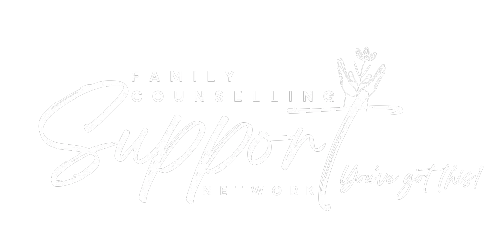


We are committed to protecting your personal information and respecting your privacy. This website uses cookies to analyze website traffic and optimise your website experience. By accepting our use of cookies, your data will be aggregated with all other user data.
DISCLAIMER: The material contained on this website is for general educational and information purposes only and is not a substitute for professional legal, financial, medical or psychological advice or care. While every care has been taken in the information provided, no legal responsibility or liability is accepted, warranted or implied by the authors or Family Counselling Support Network and any liability is hereby expressly disclaimed. For specific advice please contact us at [email protected]. All information contained on the website remains the intellectual property of Family Counselling Support Network and is for your personal educational use only. The information must not be reproduced or distributed without the express permission of Family Counselling Support Network.
Family Counselling Support Network acknowledges and respects the First Nations Custodians of the land where our offices stand, and where we work to help Australians. We pay respects to their Elders, past present and emerging, lore, customs and creation spirits. We recognise that these lands have always been places of ceremony, teaching, research and learning, and we acknowledge the important role Aboriginal and Torres Strait Islander peoples play in our community.
We are committed to providing an inclusive and accessible environment where people and communities of all identities and backgrounds are accepted, safe and celebrated.
Privacy Policy | Terms and Conditions
